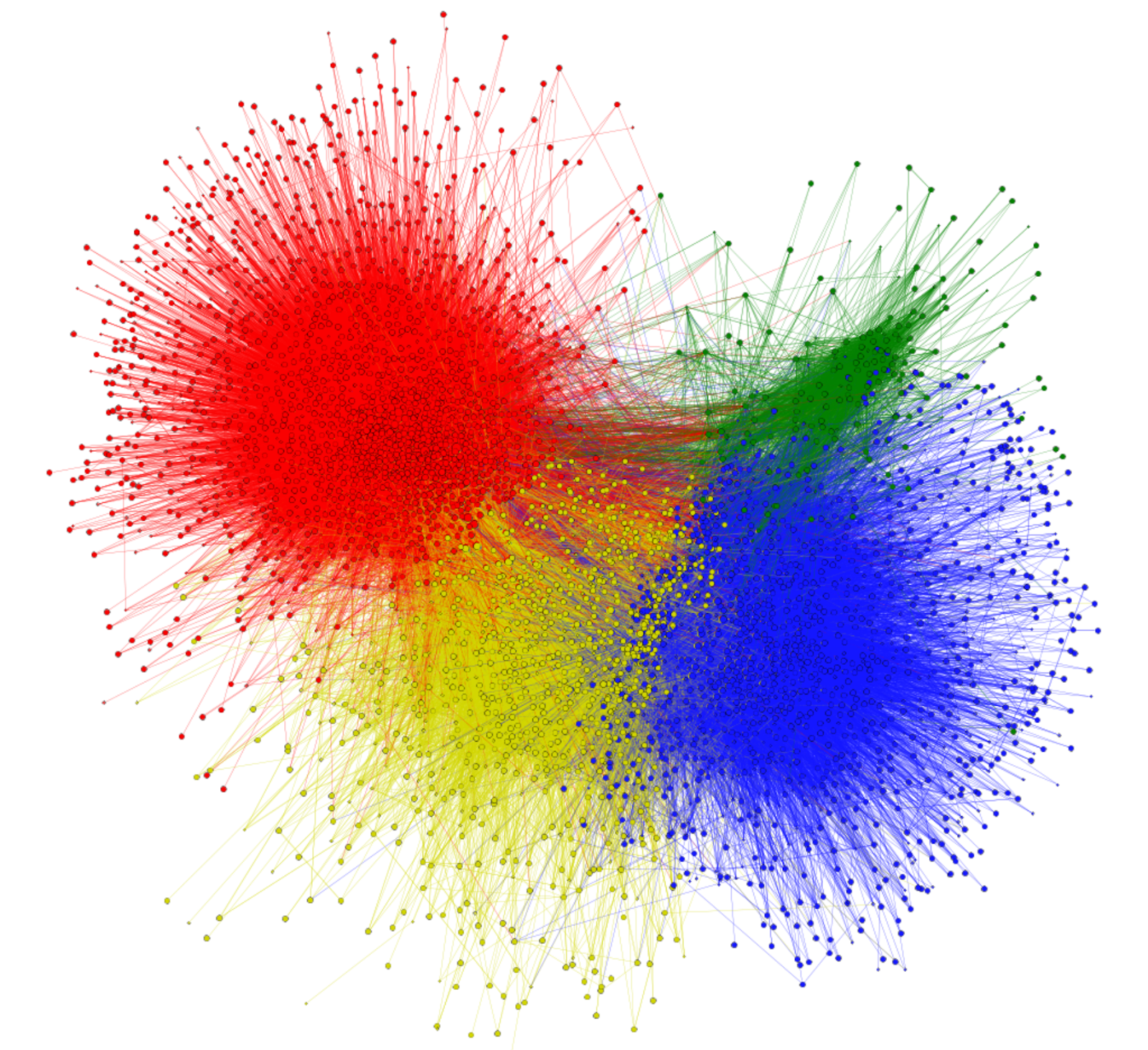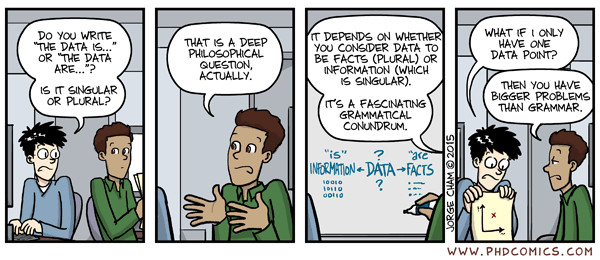class: center, middle, inverse, title-slide .title[ # Introduction to social media data analysis within social data science ] .author[ ### David Garcia <br><br> <em>University of Konstanz</em> ] .date[ ### Social Media Data Analysis ] --- layout: true <div class="my-footer"><span>David Garcia - Social Media Data Analysis</span></div> --- # About me .pull-left[ .center[ <img src="Profile.jpg" width="270" /> ]] .pull-right[ <br> Website: [dgarcia.eu](https://dgarcia.eu) Bluesky: [@dgarcia.eu](https://bsky.app/profile/dgarcia.eu) Github: [dgarcia-eu](https://github.com/dgarcia-eu) Email: david.garcia@uni-konstanz.de ] - Professor for Social and Behavioral Data Science, University of Konstanz - Faculty member of the Complexity Science Hub Vienna - External faculty at the Barcelona Super Computing Center - Privatdozent at ETH Zurich --- # Today's agenda ## 1. Introduction to Social Data Science Lab ## 2. Social Media Data Science ## 3. About this Course --- background-image: url(Buildings.svg) background-size: 97% # A bit more about me .pull-left[ - BSc in Informatics at Universidad Autonoma de Madrid (UAM), Madrid, Spain - MSc in Computer Science (theory of computation) at ETH Zurich - PhD and Habilitation at MTEC department at ETH Zurich - Previously: PI at the Medical University of Vienna and Complexity Science Hub Vienna - Previously: Professor for Computational and Behavioral Social Sciences at TU Graz ] --- background-image: url(AboutUS.svg) background-size: 98% --- ## Research lines <img src="Topics3.svg" width="1000" style="display: block; margin: auto;" /> --- background-image: url(VennV2-1.svg) background-size: 97% --- background-image: url(VennV2.svg) background-size: 97% --- # Who are you? - SEDS students: year 1 - SEDS students: year 2 - SEDS students: year 3+ - Other programmes? -- ###And more importantly: What do you expect from this course? -- ###Side question: Which social media do you use? What for? --- # Social Media Data Science ## 1. Introduction to Social Data Science Lab ## *2. Social Media Data Science* ## 3. About this Course --- # What is social media? Information and Communication Technologies that enable users to share content with each other and with larger audiences. Social media are old but changed a lot recently. One example: .center[ #### VATIAM AEDILEM FURUNCULI ROGANT (The petty thieves ask for Vatia as aedile) Graffito on the wall of a building in Pompeii ] How do our social media differ from a writing on a street wall? --- # What can we measure in social media? "The idea that anything as subtle and complex as all the manifestations of changes in temperature could be measured and quantified on a single numerical scale was scoffed at as impossible, even by the leading philosophers of the sixteenth century." –Arthur Jensen, Bias in Mental Testing, 1980 - Measuring meaning through text seemed very hard but has been improving substantially over time - Tracking the connections between Billions of people seemed impossible and now it is a boring reality - What now might feel subjective might be quantitative science in the future --- # What can we use social media data for? "The plan was to connect these devices to a network –it would ride on the existing TV networks– so that the total national happiness at any moment in time could be determined. The algedonic meter, as the device was called (from the Greek algos, “pain,” and hedone, “pleasure”), would measure only raw pleasure-or-pain reactions to show whether government policies were working." –Evgeny Morozov, The New Yorker, 2014 "More is different" –Paul Anderson, 1972 --- ## Social Media as a data in Social Data Science > The aim of Social Data Science is **the Quantitative Understanding of Human Behavior**. - **Quantitative:** As opposed to qualitative or descriptive, we aim for robust findings grounded in strong evidence that can be quantified. - **Understanding:** Not just predicting, we want to be able to generalize and combine knowledge, and even to motivate interventions or policies. - **Human:** We will not study particles or objects. Measurement validity and ethics will be a challenge. - **Behavior:** Observable changes, structures, dynamics, and patterns; not just stories or theories --- # How are we going to do it? **Retrieving, processing, analyzing, and interpreting social media data.** .center[ ] --- # What is data? > **Data:** Facts in the form of stored and transmittable information. - *Data* is the plural of the Latin word *datum*. *Data* means ”given (things)”. - Data is given to us, it is not fabricated nor simulated.  --- # What is Social Data Science? <div style="float:right"> <img src="https://images.squarespace-cdn.com/content/v1/5150aec6e4b0e340ec52710a/1364352051365-HZAS3CLBF7ABLE3F5OBY/ke17ZwdGBToddI8pDm48kB2M2-8_3EzuSSXvzQBRsa1Zw-zPPgdn4jUwVcJE1ZvWQUxwkmyExglNqGp0IvTJZUJFbgE-7XRK3dMEBRBhUpxPe_8B-x4gq2tfVez1FwLYYZXud0o-3jV-FAs7tmkMHY-a7GzQZKbHRGZboWC-fOc/Data_Science_VD.png" alt="Data Science discipline Venn diagram" width="450px"/> </div> **Social Data Science** is the application of Data Science to study human behavior and social interaction. - Importance of combining methods, synthesis, and communication - Gathering digital traces with Computer Science techniques - Analysis interpretation with respect to what is known in the relevant Social Sciences **Interdisciplinarity: learning from the mistakes of one discipline to improve the others** - many examples in this course --- # Why digital traces? Data from digital traces have six properties that can complement other traditional data sources in the social sciences: - **Big Data:** Observing large amounts of humans across demographics - **Fast Data:** Quantifying aspects of human behavior in real time - **Long Data:** Retrieving longitudinal data and at various timescales - **Deep Data:** Gathering persistent information on individuals - **Mixed Data:** Combining heterogeneous datasources and unstructured data - **Strange Data:** Locating small subcommunities or deviant behavior --- # What are the limitations of digital traces? With the great potential of digital traces, aslo come great challenges: - **Platform biases:** caused by their design, algorithms, social bots, etc - **Data gatekeepers:** Not everyone can access some data sources - **Performative behavior:** Talking online is not the same than offline. - **Representativity issues:** Not everyone leaves digital traces. - **Observational data:** Testing causal mechanisms is not straightforward. - **The data deluge:** Too much data enables black-box predictions that can be useful but limit our understanding. --- ### The importance of questions in Social Data Science  Deep Thought, from the movie version of The Hitchhiker's Guide to the Galaxy. > **Understanding our questions is a prerequisite to understanding their answers.** --- # About this Course ## 1. Introduction to Social Data Science Lab ## 2. Social Media Data Science ## *3. About this Course* --- # Course objectives After this course, you should be able to: - understand a wide variety of techniques to retrieve **digital trace data from online platforms** - store, process, and summarize online data for **quantitative analysis** - perform **statistical analyses** to test hypotheses, derive insights, and formulate predictions - **interpret** the results of data analysis with respect to testable **theories of human behavior** - understand the **limitations** of observational data analysis with respect to data volume, statistical power, and external validity --- # Course topics ### Block 1: Introduction - Introduction to social media data analysis within social data science - Algorithms and digital traces: The case of Google trends - Ethics and privacy in social media data analysis - Exercise 1: Future orientation and search ### Block 2: Social dynamics - Social impact theory and its application to social media - Social trends and the Simmel effect - Exercise 2: Testing the division of impact hypothesis in social media --- # Course topics ### Block 3: Text in social media - Dictionary methods in social media data analysis - Supervised social media text analysis - The measurement of meaning in social media - Exercise 3: Validating sentiment analysis for social media text ### Block 4: Networks in social media - Introduction to social networks and the friendship paradox - Centrality measures in online social networks - Communities and assortativity in social media - Social issues on social media - Exercise 4: Political assortativity on Twitter --- # Exercises and practical sessions - Time and place: Wednesdays at 13:30, room E402 - Your tutor will be Elena Solar, some tutorials will be co-teach with me - Assignments will be released on Wednesday before the tutorial - The deadline is before a tutorial a few weeks later - Assignment submissions through Github as in ICSS - **Each assignments counts 25% of the final tutorial grade (3 ECTS)** - Assignments will be posted and submitted through Github Classroom - Talk to Elena Solar to be invited to the repositories - We will set up a forum for course discussions and Q&A --- # Learning materials and evaluation - Github materials: https://github.com/dgarcia-eu/SocialMediaDataAnalysis - The frontpage contains announcements and links to lecture slides - Over the semester it will be populated with written handouts - Assignments will be posted and submitted through Github Classroom - **Assignments are essential to be able to do the project and pass the Lecture** - **I don't recommend taking only the lecture part without tutorials unless you did the tutorials last year** - Lecture part is graded based on project reports - You can pitch your project and get feedback during the last session (16.07) but only the report is evaluated - More information on project guidance and evaluation criteria later --- # Summary - In this course, you will learn how to retrieve, analyze, and interpret social media data - Our aim is aligned with Social Data Science: quantitative understanding of human behavior - Course contents include social dynamics, text analysis, social networks - Emphasis on critique and understanding of limitations and potentials - Join us for the first tutorial on later today! - **Questions?** --- # Emerging topics brainstorming ## What emerging topics or methods would you like to learn about? - Any new platforms? - New social issues or problems? - New methods? - Any paper or project that you found inspiring?